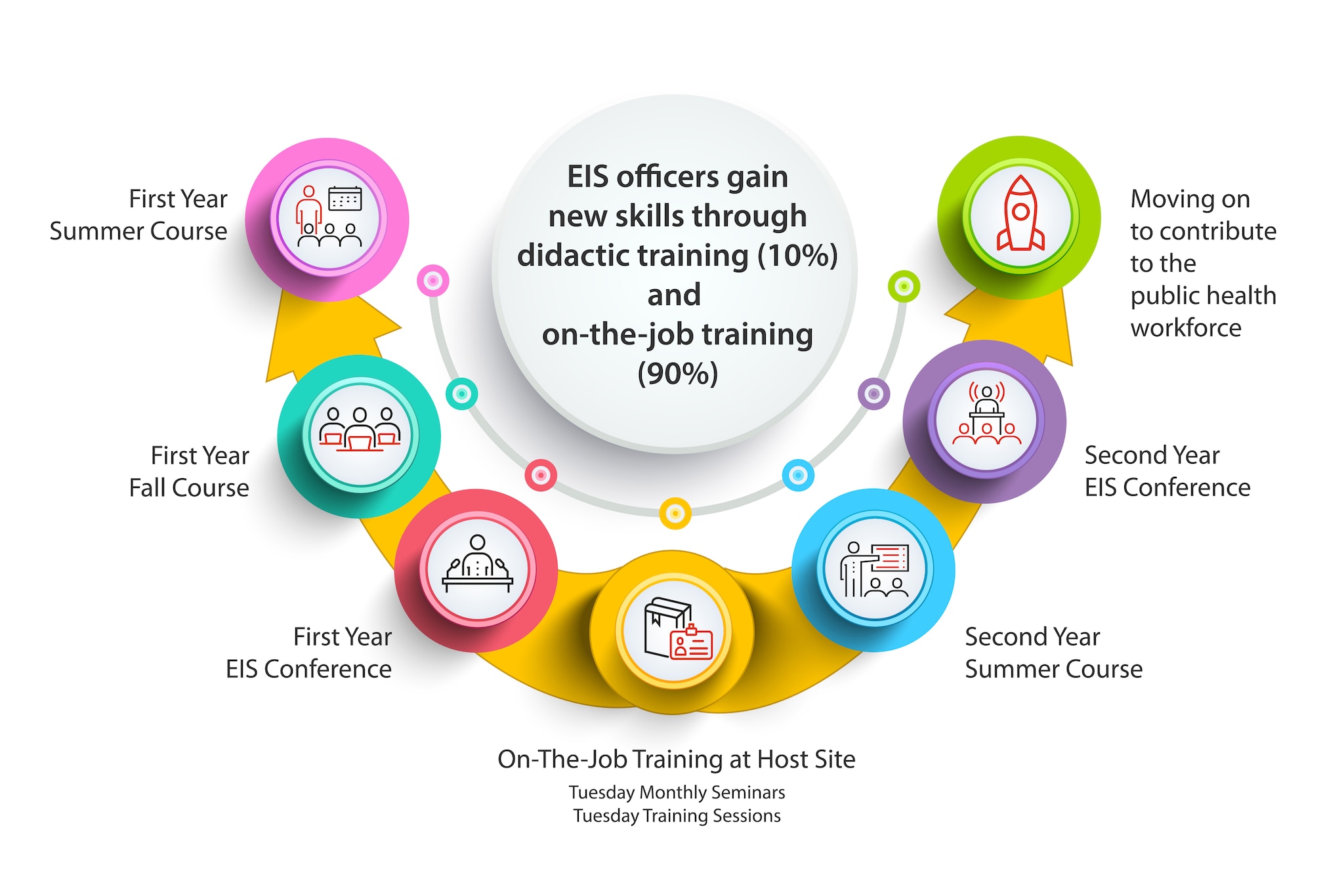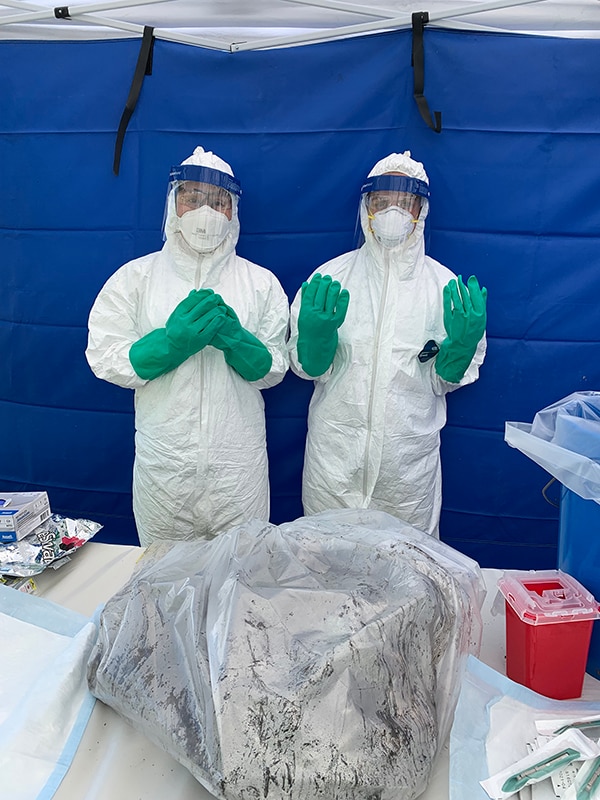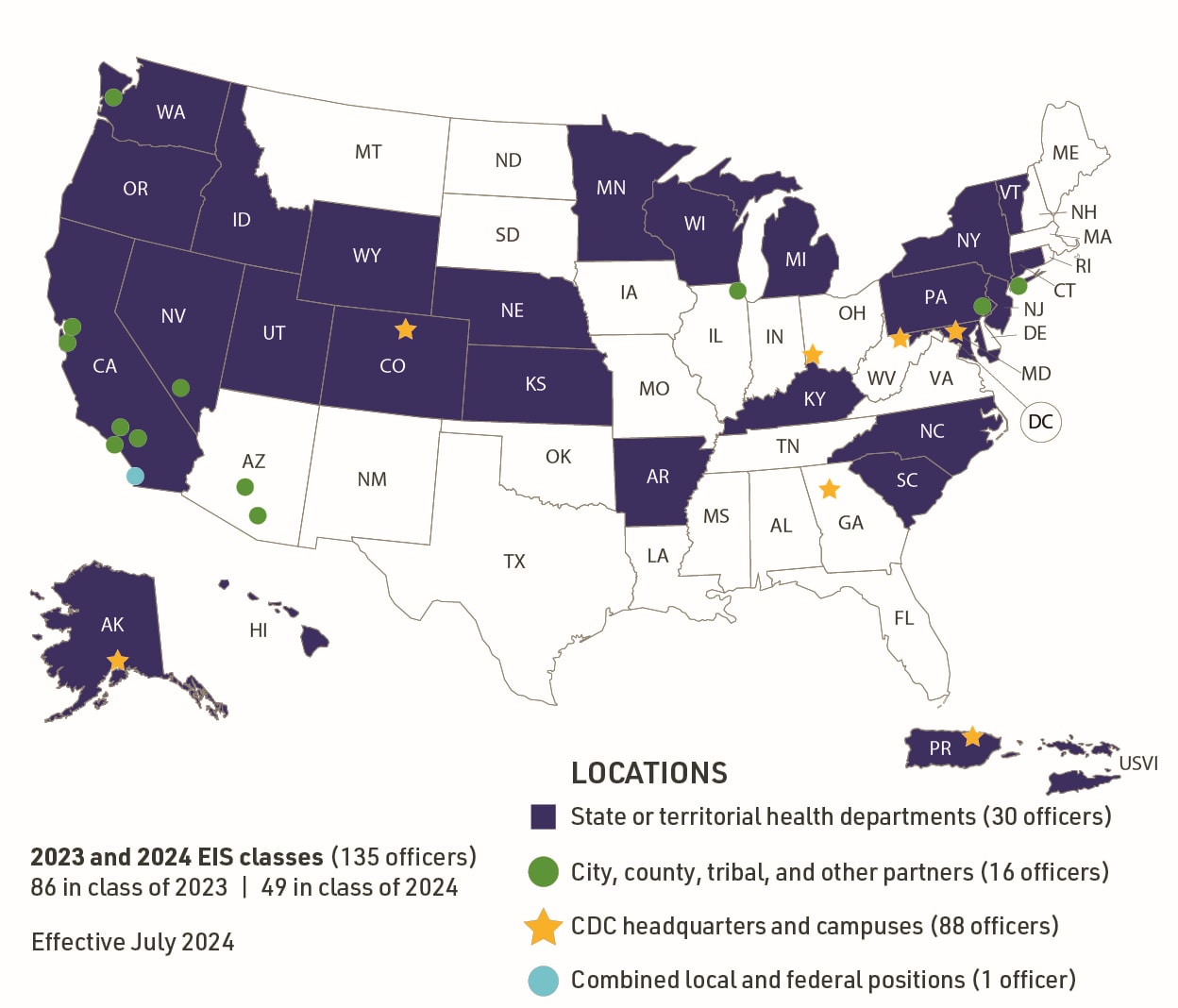Key points
EIS officers serve at the forefront of public health, protecting Americans and the global community, while training under the guidance of seasoned mentors. When disease outbreaks or other public health threats emerge, EIS officers investigate, identify the cause, rapidly implement control measures, and collect evidence to recommend preventive actions.
What We Learn
During this 2-year hands-on service fellowship, EIS officers serve our country while learning applied epidemiology and gaining practical skills to become future public health leaders.

About 10% of EIS training occurs through a rigorous mix of small and large group classroom instruction, case studies, exercises, and e-learning. About 90% of the training is provided through hands-on assignments under the guidance of seasoned mentors and supervisors (usually EIS alumni).
Training activities include:
| Timing/duration | For which officers? | Training topics covered |
|---|---|---|
| 1-month summer orientation course (July) |
1st year | in-depth information and guidance on an array of topics such as federal employment protocols/expectations, fellowship competency requirements, investigating outbreaks, conducting epidemiologic research and surveillance, evaluating surveillance systems, analyzing data, risk communication, racism as a public health issue, collaborating with state/local health departments, and more |
| 1-week fall course (October) |
1st year | effective written and oral communication, data visualization, presentation development and delivery, communicating with news media |
| 1-week summer course (August) |
2nd year | leadership, scientific writing, career development and networking opportunities, health equity seminar |
| EIS Conference (April/May) |
1st & 2nd year | EIS officers present their work in oral presentations, engage in media interviews, career networking |
| Throughout fellowship | 1st & 2nd year | ongoing opportunities to learn about the investigative work of EIS officers at CDC’s internal Tuesday Monthly Seminars and to receive additional instruction at monthly Tuesday Training Sessions |
On-the-Job training activities involve:
- Applying epidemiologic skills in assigned public health projects, such as infectious and noninfectious disease, global health, injury prevention, environmental health, and occupational health
- Deploying as a ready responder to CDC's Emergency Operations Center or field site to provide epidemiologic assistance for disease outbreaks and other urgent public health threats, and to provide disaster relief following natural and industrial events
- Collaborating with multidisciplinary experts across and within CDC, other public health agencies and partners
- Meeting routinely with supervisor(s)
- Consulting with mentors, supervisors, and other seasoned professionals within the EIS network
For more information about EIS officers' fellowship experiences, visit the EIS Fellows' Stories web page.
How We Serve

EIS officers protect the public's health by serving CDC, other public health agencies and partners.
While working in their assignments and deployments, they perform the following Core Activities of Learning:
- Conduct or participate in field investigations
- Design, conduct, and interpret epidemiological analyses
- Evaluate public health surveillance systems
- Give public health talks about their work
- Give oral presentations to scientific audiences
- Write scientific manuscripts for peer-reviewed journals
- Write concise public health updates communicating timely information
- Write abstracts
- Communicate complex scientific concepts to lay audiences
Service Highlights
EIS officers have responded to many major health threats since 1951, including
- Investigating biological warfare during the Korean war
- Participating in the worldwide Smallpox Eradication Program in the 1960s and 1970s
- Discovering the microbes that cause Legionnaires' disease, Lassa fever, and HIV/AIDS
- Investigating and responding to outbreaks and incidents related to Anthrax, SARS, and flu subtypes H1N1 and H5N1
- Providing disaster relief following Hurricanes Harvey, Irma, Maria, and Katrina, and 9/11
- Providing on-the-ground support for Ebola, Zika, COVID-19, and mpox responses
Did You Know?
Learn More
- 2023 EIS Annual Update Report [4 MB, 6 Pages]
- CDC Current Outbreak List: types of investigations that involve EIS officers

